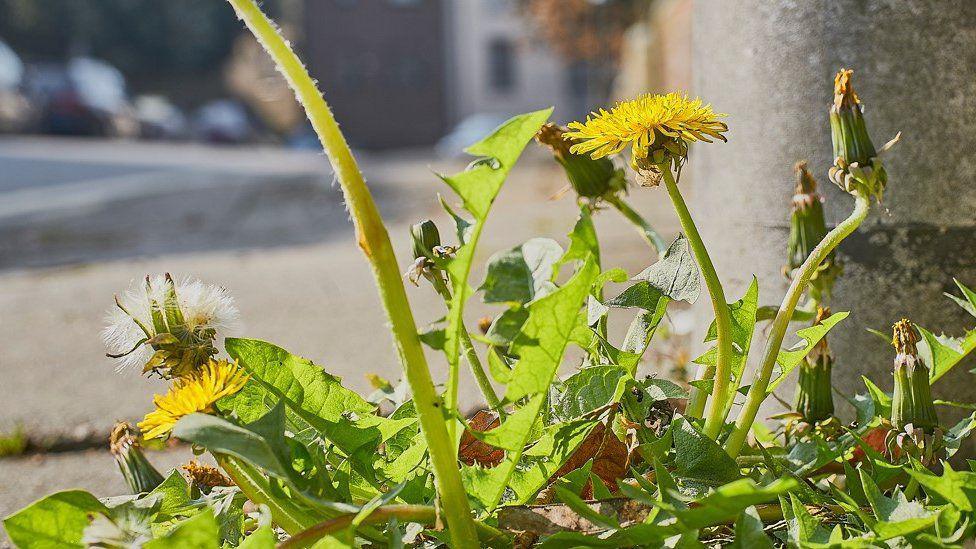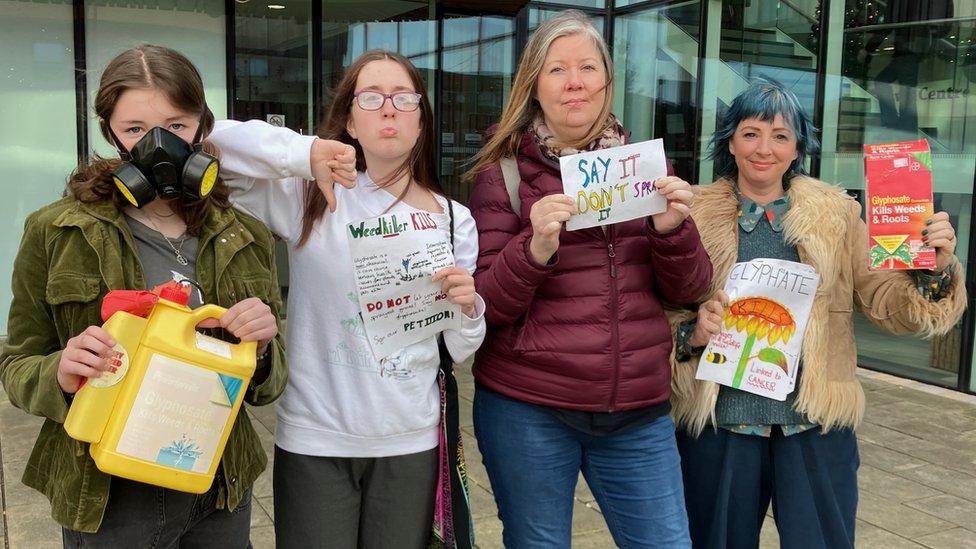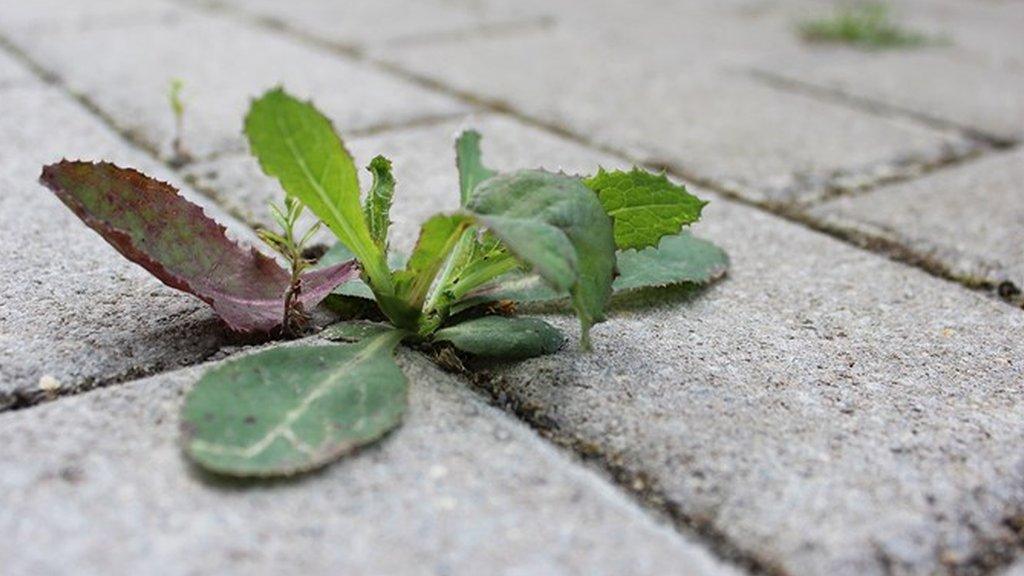Chemical weedkiller use to continue despite concerns

A council report found chemical weedkiller glyphosate was the "most effective solution currently available"
- Published
Chemical weedkiller will continue to be used in a city's parks and on footpaths after an effective alternative could not be found.
Sunderland City Council said it had hoped to stop using glyphosate herbicide over health concerns linking it to cancer.
However, after three years of trying other treatments, it said the chemical was the most "effective and less expensive" solution.
The authority also said it had halved the use of the herbicide on its land in the last three years, from 203 gallons (925 litres) to 106 gallons (480 litres).
A council report found that alternatives were "less effective, more expensive and had a greater detrimental environmental and ecological impact".
It said that this had resulted in "reduced resident satisfaction" about weeds clogging up paths, according to the Local Democracy Reporting Service.
In March 2021 the council said it hoped to scrap the use of the weedkiller, external following concerns from city residents about impacts on human, animal and environmental health.
However, following trials of alternatives, a cabinet report concluded that glyphosate was the most effective.
The Labour-run cabinet agreed on Thursday that it would continue using the herbicide, which is also used to tackle invasive species such as Japanese knotweed.
The authority also pledged to carry on trying to find less toxic alternatives.
Follow BBC Sunderland on X (formerly Twitter), external, Facebook, external and Instagram, external. Send your story ideas to northeastandcumbria@bbc.co.uk
Related topics
More like this story
- Published27 March 2024

- Published26 March 2023
